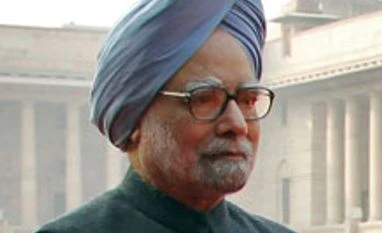Asserting that public procurement forms a substantial slice of state spending, Prime Minister Manmohan Singh on Thursday said competitive procurement markets can help save valuable fiscal resources.
Addressing at the 3rd BRICS International Competition Conference here, Dr. Singh said: "There is an increasing need to recognize the complementarities between competition law enforcement and liberalization of markets for procurement. Public procurement, more specifically, is a substantial slice of State spending in most emerging economies."
"Elimination of unnecessary restrictions and better tender design can therefore, enhance possibilities for effective competition, thereby making bid rigging more difficult. As a result, competitive procurement markets can help save valuable fiscal resources and release funds for development," he added.
Stating that the state-owned companies or PSEs (Public Sector Enterprises) may have long enjoyed captive markets, he said the government's ownership in such entities does not mean that these enterprises should be shielded from competition.
"State owned or public sector enterprises are another challenge. By virtue of their ownership, they have been shielded from competition and have long enjoyed captive markets. A crucial issue is the exposure of these firms to increased competition. The government may own a public sector firm and exercise the normal rights of ownership. But this does not mean that it should shelter the firm from competition as well," he said.
"Unfortunately, government ownership inevitably brings with it a bureaucratic style of decision-making and the end result is that the enterprise cannot compete in a market populated by equals. The solution lies in giving public sector firms greater functional autonomy and freeing them from bureaucratic control, and not in tolerating a slip in their competitiveness and then shielding them from competition," he added.
More From This Section
He further stated that the BRICS countries have today a combined population of 3 billion with a total estimated GDP of nearly 14 trillion dollars and around 4 trillion dollars in foreign exchange reserves.
"China is on the path to becoming the undisputed global leader in export of manufactured goods; India is poised to become the most significant exporter of services. Russia and Brazil dominate as exporters of raw materials. South Africa is ideally situated to reap dividends from the untapped growth potential of the African continent," he said.
Dr. Singh further said while the BRICS countries can entertain many possibilities for newer forms of economic and political co-ordination, we also face common challenges.
"Monitoring and managing speculative capital flows is a challenging task in times of global uncertainty. Maintaining a sustainable fiscal policy, while incurring significant public expenditures to raise the standards of living of a large population, is also a task that we have to grapple with continuously," he said.
"Developing infrastructure at a pace that supports the growth of industry and the increasing aspirations of the people is yet another challenge before us. Last, but by no means least, there is the need for building credible institutions for sustained and equitable growth," he added.
)